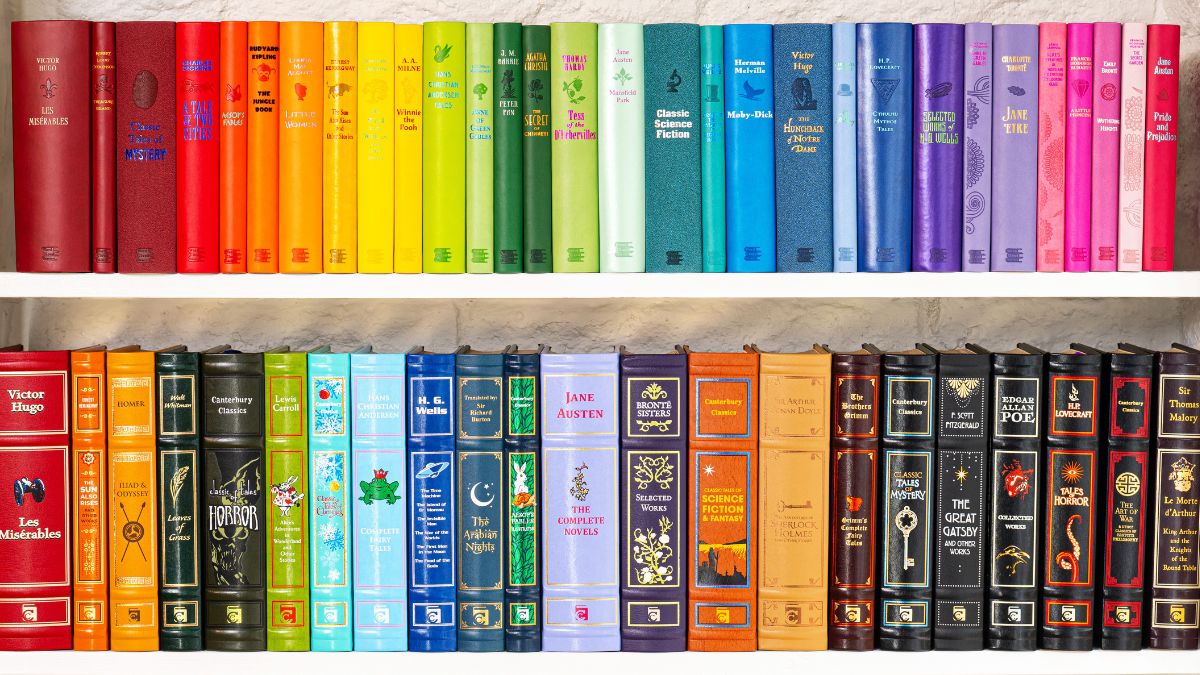Classic Books That Have Shaped Modern Entertainment
Classic Books . Classic literature has had a profound impact on modern entertainment. From blockbuster movies and TV shows to video games and theater, many aspects of contemporary culture find their roots in timeless books. These classic works continue to inspire storytellers across different mediums, influencing narrative structures, character development, and thematic elements. Let’s explore some of the classic books that have left an indelible mark on modern entertainment.
“Frankenstein” by Mary Shelley: The Birth of Science Fiction
Published in 1818, Frankenstein by Mary Shelley is often regarded as the first science fiction novel. The story of Dr. Victor Frankenstein and his monstrous creation has been adapted into countless films, TV series, and even video games. The themes of playing God, the dangers of unchecked scientific ambition, and the quest for identity continue to resonate in modern storytelling. Movies like The Bride of Frankenstein (1935) and more recent adaptations like Victor Frankenstein (2015) showcase the enduring appeal of this classic. Beyond direct adaptations, the story has influenced the broader genre of science fiction, inspiring narratives that explore the ethical implications of technological advancement.
“Pride and Prejudice” by Jane Austen: The Blueprint for Romantic Comedies
Jane Austen’s Pride and Prejudice, first published in 1813, has left a lasting impact on the romantic comedy genre. The novel’s witty dialogue, strong female protagonist, and slow-burn romance have served as a template for countless films and TV shows. Adaptations like the 1995 BBC miniseries and the 2005 movie starring Keira Knightley have brought the timeless love story of Elizabeth Bennet and Mr. Darcy to new generations. Beyond direct adaptations, the novel’s influence is evident in modern romantic comedies that feature complex characters, social commentary, and a blend of humor and romance. Movies like Bridget Jones’s Diary (2001) and You’ve Got Mail (1998) echo the charm and wit of Austen’s original work.

“Moby-Dick” by Herman Melville: An Exploration of Obsession
Herman Melville’s Moby-Dick (1851) is more than just a story about a man hunting a whale; it is a deep exploration of obsession, revenge, and the human condition. This complex narrative has inspired numerous films, stage adaptations, and even operas. The novel’s central themes of obsession and the relentless pursuit of an unattainable goal have influenced a wide range of stories in modern entertainment. Movies like Jaws (1975) borrow heavily from the themes of Moby-Dick, focusing on a central character’s fixation on a singular, almost mythical, antagonist. The psychological depth and philosophical undertones of the book continue to inspire creators across various mediums.
“1984” by George Orwell: A Cautionary Tale for Modern Society
George Orwell’s 1984, published in 1949, has become a touchstone for discussions about surveillance, totalitarianism, and the loss of personal freedoms. The book’s dystopian vision of a world dominated by Big Brother has inspired films, TV shows, and video games that explore similar themes of oppression and control. Movies like V for Vendetta (2005) and TV series like Black Mirror draw heavily from Orwellian concepts, exploring the dark side of technology and authority. The novel’s chilling portrayal of a surveillance state continues to resonate in today’s digital age, making it one of the most influential books on modern entertainment.
“Alice’s Adventures in Wonderland” by Lewis Carroll: A Wonderland of Imagination
First published in 1865, Lewis Carroll’s Alice’s Adventures in Wonderland has sparked the imaginations of creators for generations. The whimsical world, eccentric characters, and surreal narrative have been adapted into numerous films, animated series, stage productions, and even theme park attractions. Disney’s animated Alice in Wonderland (1951) and Tim Burton’s live-action adaptation (2010) are just a few examples of how this classic has been reimagined for different audiences. Beyond direct adaptations, Carroll’s work has inspired countless stories that explore alternate realities, dreamlike worlds, and the limits of imagination.
“Dracula” by Bram Stoker: The Cornerstone of Gothic Horror
Bram Stoker’s Dracula, published in 1897, is the definitive vampire novel that laid the foundation for the entire genre of vampire fiction. The character of Count Dracula has become a cultural icon, appearing in numerous films, TV shows, and other media. From the early adaptation of Nosferatu (1922) to modern shows like Buffy the Vampire Slayer and movies like Bram Stoker’s Dracula (1992), the influence of Stoker’s work is evident. The themes of immortality, forbidden love, and the battle between good and evil continue to captivate audiences. The novel’s atmospheric storytelling and complex characters have inspired generations of creators in the horror genre and beyond.
“The Great Gatsby” by F. Scott Fitzgerald: A Tale of Dreams and Disillusionment
Published in 1925, The Great Gatsby by F. Scott Fitzgerald has become a quintessential American novel that explores themes of ambition, love, and the American Dream. The story of Jay Gatsby and his pursuit of Daisy Buchanan has been adapted into multiple films, including the 2013 version directed by Baz Luhrmann. The novel’s exploration of wealth, class, and disillusionment continues to resonate in modern narratives that examine the darker side of ambition and desire. Its themes are frequently echoed in stories that critique the notion of success and the cost of pursuing it.
Conclusion
Classic books have shaped modern entertainment by providing timeless stories, rich characters, and profound themes that continue to resonate. Whether through direct adaptations or thematic inspirations, these literary works have laid the foundation for countless movies, TV shows, and other forms of entertainment. As new generations rediscover these classics, their influence will undoubtedly continue to shape the cultural landscape.



